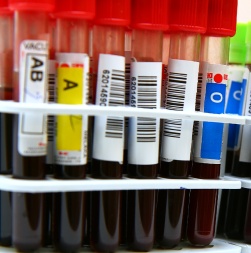Genetic testing and counseling
The genetic test serves to understand in more detail what is the risk that the person being seen will develop cancer.
It is one of the tools used in the family risk clinic.

The test aims to identify the specific mutation(s) behind breast cancer in that family, with practical implications for the prevention of the disease in the future. Testing those family members most likely to carry the mutation not only identifies those that have it so they can be regularly monitored, but also reassure those that do not have it.
Genetic testing is not obligatory – the test is always accompanied by genetic counseling and only done with the individual’s consent.
Contrary to common belief, the test is neither quick nor always conclusive.
In the section genetic test , learn more about the test: who should do it, how it is done, what are its limitations and how to interpret the results.




